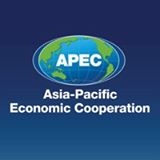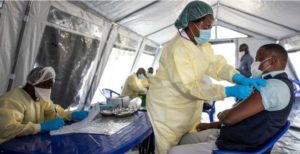APEC to create next-generation tourism industry with Macao Declaration

Macao, China – Tourism Ministers from APEC’s 21 economies have adopted a set of measures that ensures the Asia-Pacific travel and leisure industry keeps pace with changing consumer trends and advances in technology.
New initiatives from facilitating tourist travel and promoting smart digital technologies in modern tourism management to developing sustainable, low-carbon tourism destinations are outlined in the Macao Declaration, adopted today by the 8th APEC Tourism Ministerial Meeting, chaired by Shao Qiwei, Chairman of the China National Tourism Administration.
The Macao Declaration can be viewed at this link.
“By removing barriers and improving the integration of the Asia-Pacific tourism market, APEC can meet its new target of 800 million tourists by 2025,” said Vice Premier Wang Yang of China’s State Council, in his opening remarks.
“Through encouraging the flow of people and investment within the region, the development of the tourism sector helps contribute to an open market while boosting regional connectivity and economic growth.”
Making it easier for tourists to travel throughout the region remains an important priority. APEC members plan to work on improving visa processes and shortening wait times for tourists at airports to help boost tourism industry growth. By improving visa processing, APEC stands to gain up to 57 million additional international tourist arrivals by 2016 and an estimated 2.6 million new jobs, according to the United Nations World Travel Organization and the World Travel and Tourism Council.
“We welcome promoting the tourism sector as a key pillar in APEC’s work,” said Mari Pangestu, Indonesian Minister of Tourism and Creative Economy, in her remarks on behalf of APEC Ministers at the opening ceremony.
“The sector is critical economically for the region with the Asia-Pacific enjoying the largest tourism market in the world. Globally, the tourism industry is the third largest sector, providing one in eleven jobs worldwide,” added Minister Pangestu.
In order to promote the tourism sector in the region, APEC member economies will implement a number of initiatives to further develop the industry and respond to changing consumer demands.
As more tourists use the internet, mobile phone apps, and other online tools to make travel plans, consumers have become technology-savvy—raising new requirements for the industry. APEC members will work together to boost innovation and promote digital technologies in the tourism sector from smart hotels offering check-in on mobile devices to real-time collection of tourist data for tailoring personalized hotel or sightseeing services.
According to a statement issued by APEC Tourism Ministerial Meeting Secretariat , APEC also plans to better integrate the travel and leisure sector with related niche markets such as medical tourism, rural specialty tours, and cruise-based tourism. Creating a favorable policy environment to promote low-carbon tourism destinations with hotels powered by solar or biomass energy and providing more eco-based tour packages is also an important focus ahead.
“Creating a next-generation tourism sector by seamlessly connecting tourist travelers, integrating new digital technologies and offering sustainable tourism destinations are key to maintaining a competitive industry,” concluded Dr Alan Bollard, Executive Director of the APEC Secretariat.
“Adapting our tourism sector to these new trends will ensure the Asia-Pacific remains a leading tourism market globally while preserving the region’s cultural and environmental heritage.”
– TBN News , Sept. 13, 2014















